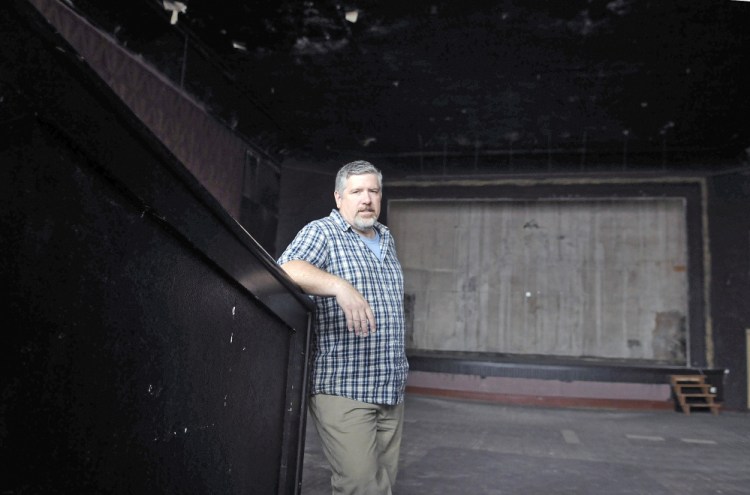GARDINER — While Johnson Hall has reached the halfway point in its capital campaign to rehabilitate and reopen its large theater, the work to sustain the performing arts center in downtown Gardiner has not slowed down.
In July, Johnson Hall received a $15,000 grant from the Elsie & William Viles Foundation that will be used for historic research documentation and analysis, which is critical when historic tax credits are being used; tax credits are one of the components of the fundraising campaign.
Patsy West, executive director of the Viles foundation, said the trust awards grants once a year.
“Elise and Bill Viles were steadfast in their interest and support to preserve historic buildings,” West said in a statement. “Johnson Hall’s restoration project is an exciting opportunity for the directors of the Viles Foundation to continue that tradition.”
That grant pushed the campaign past the halfway mark, Carrie Arsenault, Johnson Hall’s capital campaign director, said. With cash, pledges and tax credits, the campaign has raised $2.5 million of the $4.8 million identified as the goal.
“I feel we’re right on track,” Mike Miclon, executive artistic director of Johnson Hall, said.
Plans to rehabilitate the upper floors of Maine’s oldest opera house were announced in 2014. At the time, the project to reopen the derelict upper theater was expected take five years and a great deal of work that reaches well beyond the construction project.
“We have always said we are not building a building, we’re building an organization,” Patrick Wright, chairman of the opera house renovation steering committee, said.
Miclon has worked to increase the number of shows put on, both in Johnson Hall and at Gardiner’s Waterfront Park, to demonstrate that the theater has the capacity to draw people to Gardiner and sustain the public’s interest.
Theater officials have mapped out a business plan and have focused on the first three years of operation, and the board hired The Rolfson Group earlier this year to orchestrate the funding campaign at about the same time that it hired Arsenault.
“With the help of our campaign counsel and staff, we’re doing all the right things,” Wright said. “You ignore the science of fundraising at your own peril.”
Johnson Hall launched its fundraising in earnest a year ago with an announcement that Kennebec Savings Bank pledged to purchase all of the historic tax credits the project has qualified for. The bank also put together both construction financing and pledge financing packages and committed $100,000 to the campaign.
Construction is expected to start when the campaign has reached 100 percent. The project includes rehabilitating the theater, building a lobby and concession area on the second floor along with performers’ dressing and green rooms, and a full-service box office and foyer on the ground floor for the Studio Theater, which will remain open.
During construction is when Miclon expects to be the busiest, booking quality national acts for the larger theater and working to line up new theatrical works to debut in the Studio Theater on the first floor.
The end of the capital campaign is not expected to be the end of the relationship with donors.
Once the large theater is complete, Johnson Hall’s revenue picture will change. With more seats to fill and expected higher ticket prices, the portion of earned revenue is expected to increase, but it’s not expected to pay all the of the performing arts center’s expenses.
Miclon said many of the people who have contributed to the capital campaign are likely to become annual donors who will continue to contribute, noting that no arts organization can support itself on ticket sales alone.
“We’re building an organization to sustain itself for the next 100 years,” Wright said.
Jessica Lowell — 621-5632
Twitter: @JLowellKJ
Send questions/comments to the editors.


